Comprehension skills Reading Fiction Worksheets for Ages 3-6
5 filtered results
-
From - To
Enhance your child's reading journey with our Comprehension Skills Reading Fiction Worksheets designed for ages 3-6. These vibrant and engaging worksheets help young learners develop essential comprehension skills through enjoyable stories and activities. By exploring characters, plot, and settings, children will boost their understanding and retention. Tailored to early learners, our worksheets encourage critical thinking and spark imagination, making reading a fun and rewarding experience. Ideal for both teachers and parents, these resources foster a love for reading while building foundational skills. Dive into a world of creativity and knowledge with our carefully crafted worksheets that support early literacy development!
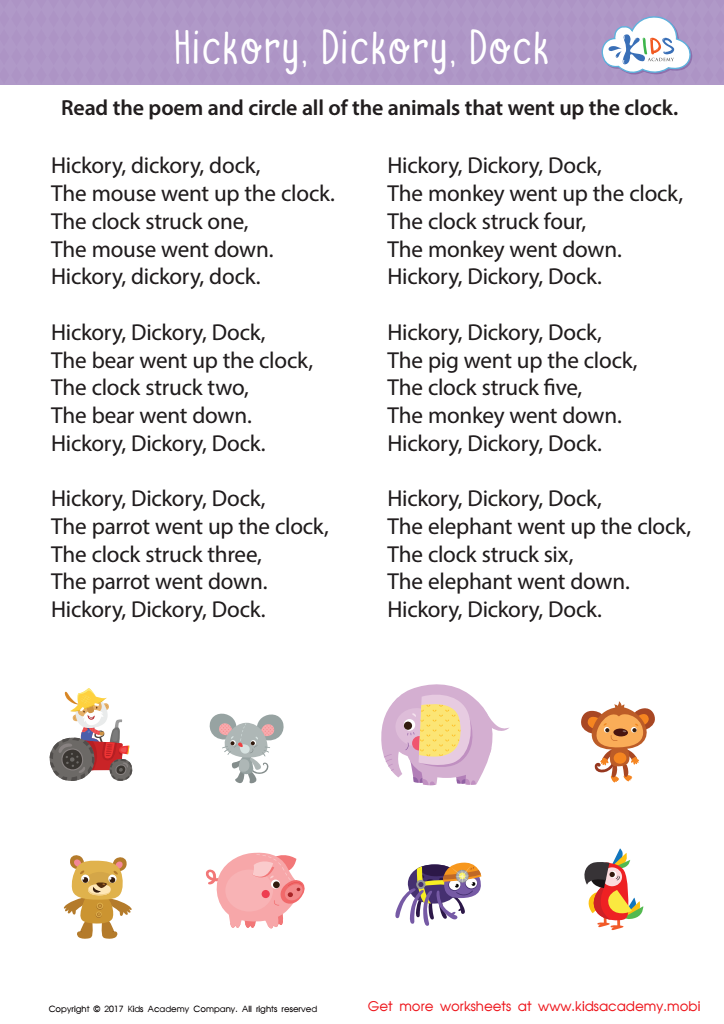

Hickory Dickory Dock Sequencing Worksheet
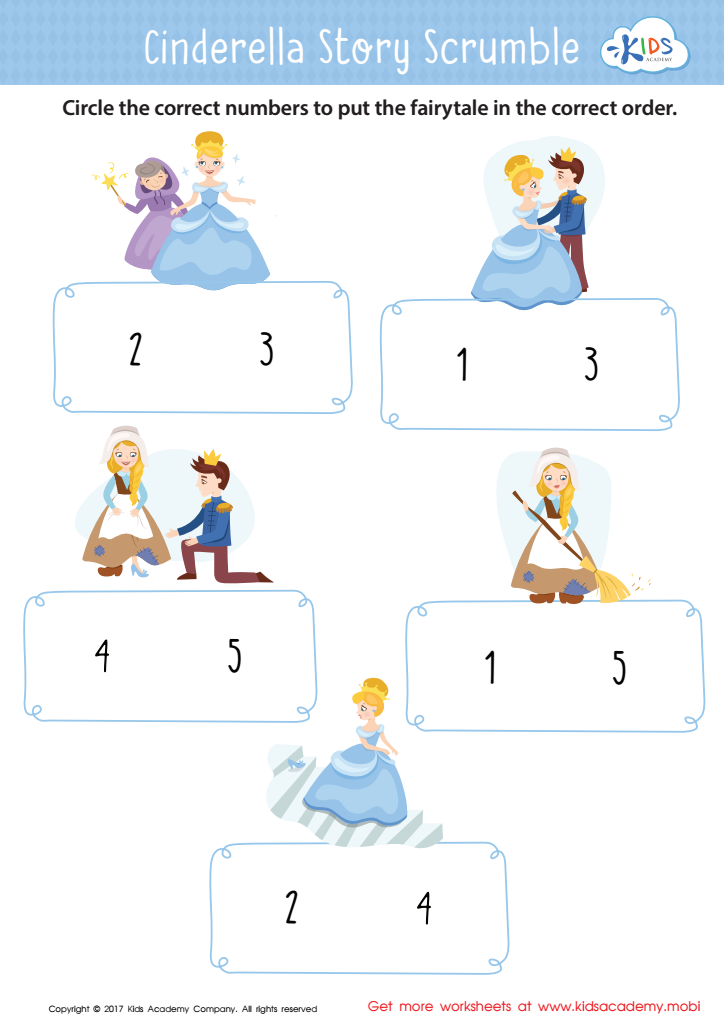

Cinderella Story Sequencing Worksheet
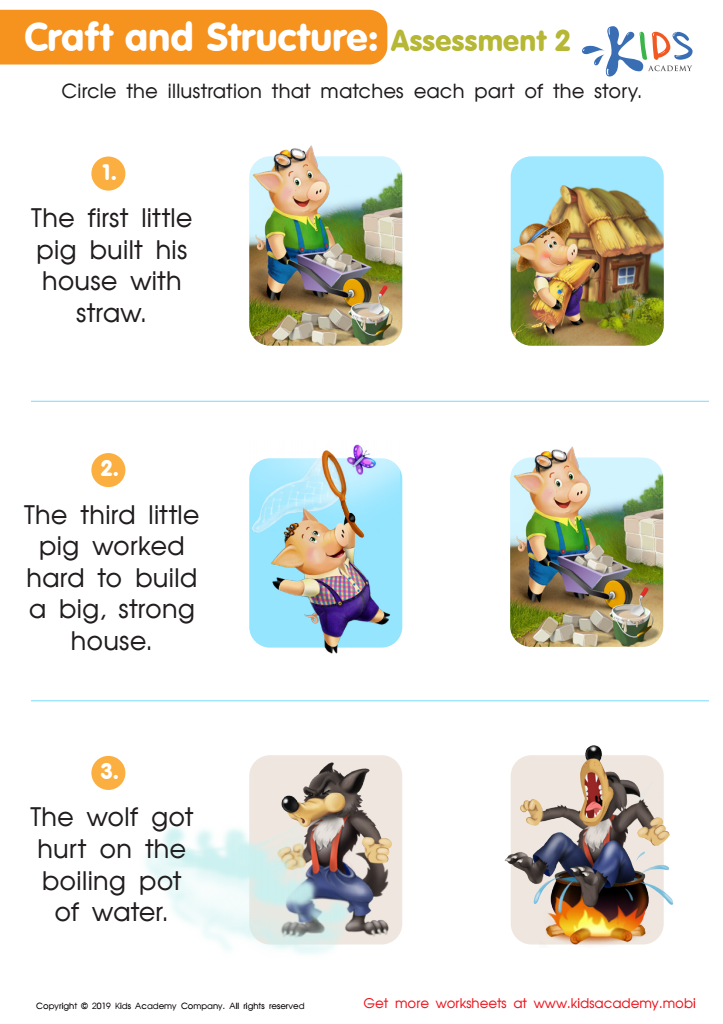

Craft and Structure: Assessment 2 Worksheet 2
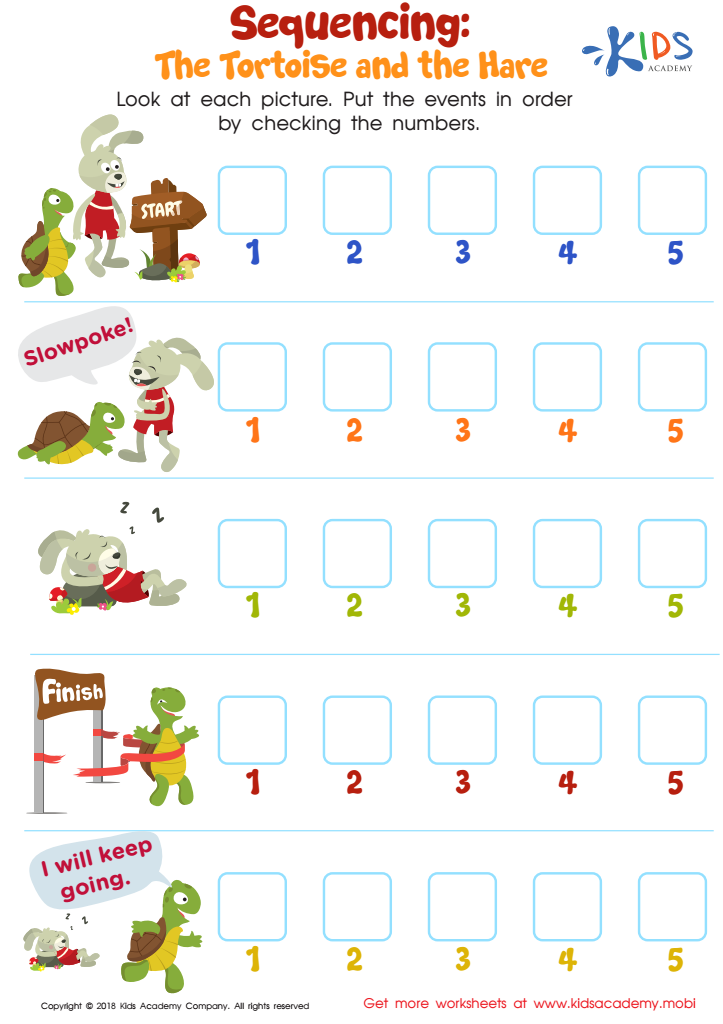

Sequencing: The Tortoise and the Hare Worksheet
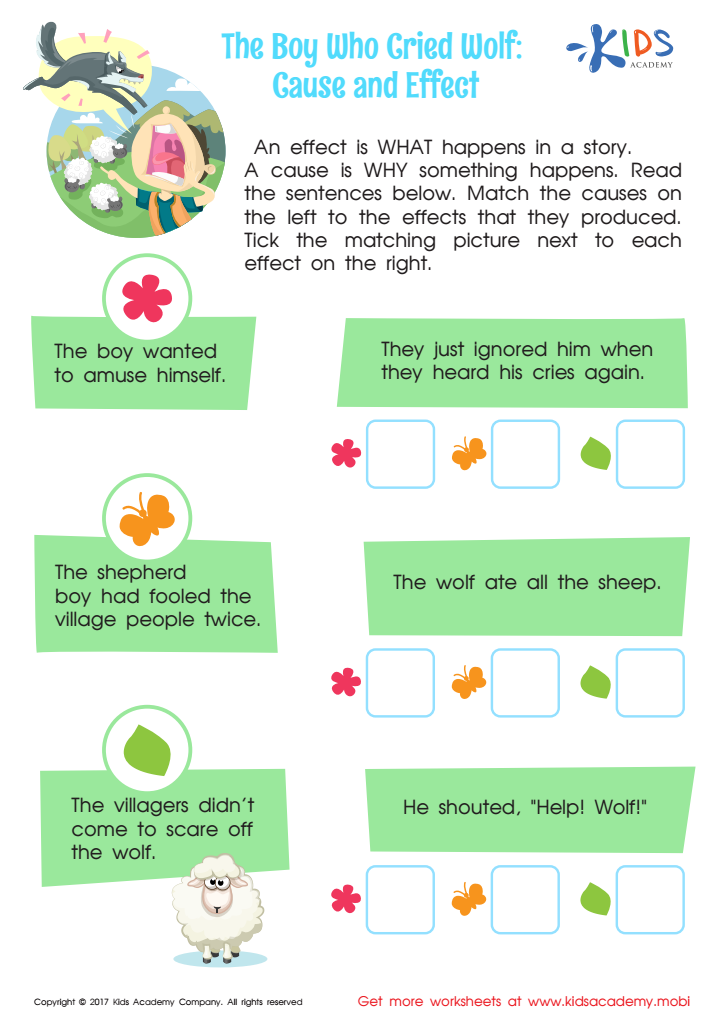

The Boy Who Cried Wolf: Cause and Effect Worksheet
Comprehension skills in reading fiction are crucial for children ages 3-6, as they lay the foundation for lifelong learning and literacy development. At this age, children are naturally curious and imaginative, often captivated by engaging stories. Developing strong comprehension skills enhances their ability to understand, interpret, and enjoy literature, which fosters a love of reading.
When parents or teachers emphasize comprehension, they help children learn to think critically about the narratives, characters, and themes within stories. This engagement promotes vocabulary expansion, enhances memory, and bolsters cognitive abilities. Additionally, comprehending fictional texts allows children to make connections between stories and their own experiences, facilitating social and emotional development.
Moreover, proficient comprehension skills are integral for future academic success. As children progress in their education, the ability to understand and analyze more complex texts will be indispensable. Encouraging discussions about stories, asking open-ended questions, and restating story elements not only build comprehension but also strengthen communication skills. Overall, nurturing comprehension in early readers not only enriches their current educational experiences but also equips them with essential skills necessary for their future. Thus, acknowledging the importance of comprehension in reading fiction is vital for parents and educators alike.
 Assign to My Students
Assign to My Students









.jpg)










